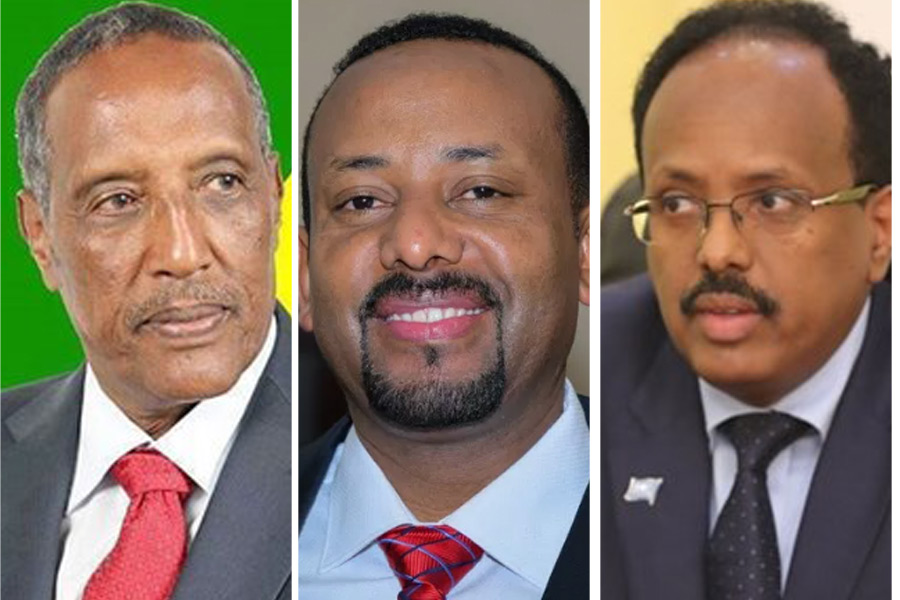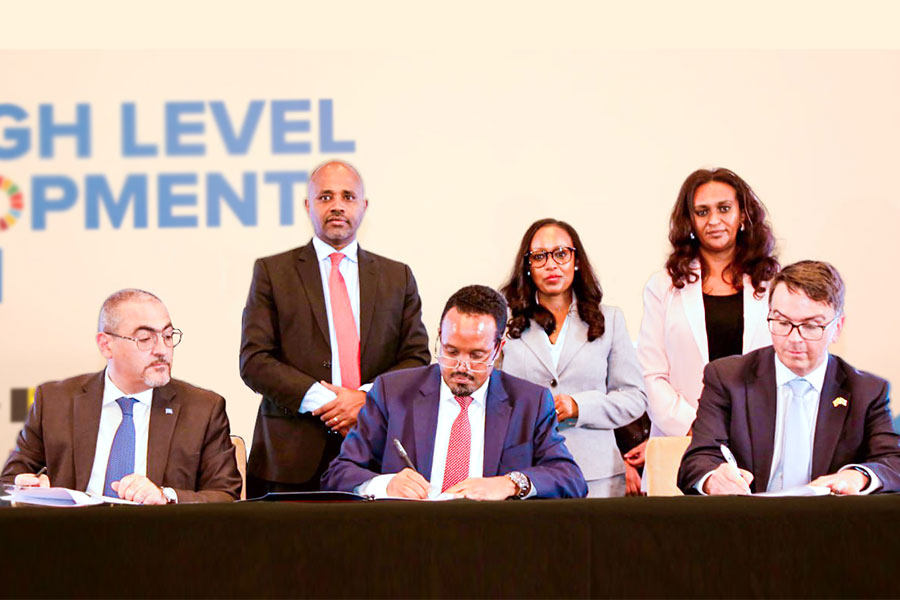
Sep 28 , 2024
By Geremew Milkias
Investing in education at the national and individual levels is crucial for sustaining the human capital needed across various sectors. In advanced economies, students often pay tuition fees by taking out loans, considering their potential wages upon employment to offset this debt. Studies have shown that each additional year of education can boost an individual's earning potential, reinforcing society's belief in the economic value of higher learning.
Ethiopia's recent initiative to train five million coders signals the demand for highly skilled programmers in the nascent digital and knowledge economy. However, this ambitious goal depends on providing quality education at every level. Without substantial investment in quality education, such initiatives may struggle to produce the desired outcomes.
In many developed countries, students select universities based on their preferences and the associated tuition fees. Families save for college expenses, and students often take on loans to cover costs. These financial mechanisms are deeply ingrained in these societies, supported by established systems that facilitate student loans and savings plans. Ethiopia lacks such a robust financial system designed to offer loans for college tuition. Many parents may not have the collateral to secure such loans, making higher education less accessible for a large portion of the population.
As the federal authorities consider transitioning to autonomous universities, the financial independence of these institutions becomes a contentious issue. While autonomy could address some of universities' financial needs, it raises questions about the broader public's ability to shoulder increased tuition fees. Without a supportive welfare system and careful preparation, the shift could exacerbate educational inequities.
However, the debate over university funding models is not unique to Ethiopia. In advanced Western economies, academic expenses often fall on students and their families. This system has led to growing voices of concern about student debt and its long-term impact on economic mobility. Graduates struggle with loan repayments, prompting discussions about whether individuals should bear the full cost of education that ultimately benefits the broader economy through their contributions in various fields.
Scandinavian countries like Denmark offer a different model. Academic programs are free for every citizen who meets institutional requirements, and students receive stipends during their university studies. This approach has cultivated strong academic programs that produce scientists and engineers, propelling Denmark to a leading position in European innovation. According to the Global Innovation Index, Denmark ranks among the top European economies without the social problems associated with high levels of private student debt in countries like the United States (US).
Understandably, Ethiopia faces economic limitations in replicating such models. With average public sector salaries of less than 6,000 Br (approximately 57.7 dollars at last week's exchange rate) a month and a per capita income of less than 2,000 dollars, expecting the majority to afford tuition fees at autonomous universities is unrealistic. Parents should deserve to have time to prepare a transitional plan before enrolling their children in tertiary institutions.
Quality education should be available to prepare students for the digital and knowledge economies. The groundwork for this knowledge economy requires proactive and assertive efforts. This includes nurturing the private sector and entrepreneurial environment that can create job opportunities. Expanding and providing high-quality, world-class educational programs is critical to capitalising on innovation and demographic dividend.
Ethiopia ranks 130th in the Global Innovation Index (GII) for 2024, trailing neighbouring Kenya at 96th. In the sub-Saharan African region, it claims 24th rank, while Kenya is one of the six innovative countries in the continent.
Successive governments have invested heavily in the education sector, expanding tertiary institutions nationwide. However, this expansion now faces the critical challenge of delivering quality programs to a larger student body. Achieving educational excellence involves improving the teacher-to-student ratio and ensuring universities have highly qualified faculty. Enhancing the financial aspects of universities is part of this equation, enabling institutions to attract and retain top talent.
Access to the latest academic research, participation in scientific investigations, and forging partnerships are vital components. Collaborations across different sectors can enhance the quality of tertiary education and increase the absorption capacity of various industries. These partnerships can lead to practical studies and innovations directly benefiting the economy.
PUBLISHED ON
Sep 28,2024 [ VOL
25 , NO
1274]


Advertorials | Jan 02,2020

My Opinion | Dec 04,2021

Advertorials | Jan 02,2020

Fortune News | Feb 20,2019

Viewpoints | Oct 12,2019

Viewpoints | Jun 28,2025

Viewpoints | Nov 30,2019

Viewpoints | May 31,2025

Commentaries | Oct 05,2019

Fortune News | Mar 16,2024

My Opinion | 132151 Views | Aug 14,2021

My Opinion | 128561 Views | Aug 21,2021

My Opinion | 126482 Views | Sep 10,2021

My Opinion | 124091 Views | Aug 07,2021





Dec 22 , 2024 . By TIZITA SHEWAFERAW
Charged with transforming colossal state-owned enterprises into modern and competitiv...

Aug 18 , 2024 . By AKSAH ITALO
Although predictable Yonas Zerihun's job in the ride-hailing service is not immune to...

Jul 28 , 2024 . By TIZITA SHEWAFERAW
Unhabitual, perhaps too many, Samuel Gebreyohannes, 38, used to occasionally enjoy a couple of beers at breakfast. However, he recently swit...

Jul 13 , 2024 . By AKSAH ITALO
Investors who rely on tractors, trucks, and field vehicles for commuting, transporting commodities, and f...

Jul 12 , 2025
Political leaders and their policy advisors often promise great leaps forward, yet th...

Jul 5 , 2025
Six years ago, Ethiopia was the darling of international liberal commentators. A year...

Jun 28 , 2025
Meseret Damtie, the assertive auditor general, has never been shy about naming names...

Jun 21 , 2025
A well-worn adage says, “Budget is not destiny, but it is direction.” Examining t...

Jul 13 , 2025 . By YITBAREK GETACHEW
The Addis Abeba City Revenue Bureau has introduced a new directive set to reshape how...

Jul 13 , 2025 . By BEZAWIT HULUAGER
Addis Abeba has approved a record 350 billion Br budget for the 2025/26 fiscal year,...

Jul 13 , 2025 . By RUTH BERHANU
The Addis Abeba Revenue Bureau has scrapped a value-added tax (VAT) on unprocessed ve...

Jul 13 , 2025 . By NAHOM AYELE
Federal lawmakers have finally brought closure to a protracted and contentious tax de...